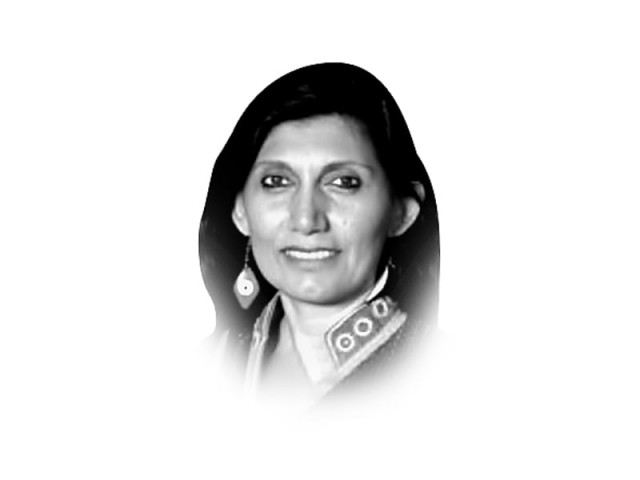What Pakistan can learn from the US poll
Obama’s win is seen outside the US as a sign of hope, a major setback to the extremist right.

President Barack Obama’s win is celebrated by a little more than 50 per cent of the Americans and, in a recent opinion poll, about 80 per cent of the countries in the world. This nation that is strongly split by two parties with a neck-and-neck race will now have a Democrat president and Senate, but a Republican House of Representatives will remain in a power struggle over the next term as well. However, President Obama’s win is seen outside the US as a sign of hope, a major setback to the extremist right and inside the country, as a statement that people want to stick together in tough times and keep moving forward.
On my return home from the celebrations, I saw people sitting in groups watching the results over their smart phones and young people singing songs of Obama on metro trains.
As we know that the federal system, established in 1789 for the US, does not acknowledge the national popular vote to decide the presidential position, but it is the ‘electoral college’ vote that stamps the fate of a candidate. Predictions for each state play a big role in designing the election campaigns. The position of many states is usually clear through the opinion polls or a clear dominant support for one party or the other. For example, states such as California (electoral votes 55), Massachusetts (11) and New York (29) are clearly ‘Democrat states’, while Texas (38), Alabama (nine) and Mississippi (six) would be considered sure shot ‘Republican states’. In this context, a few states, which are unpredictable due to their voting history, or the close competition among the candidates, are the ones to get the most attention and heavy investments from the presidential campaigns. These ‘swing states’ included Ohio (18), Florida (29), Virginia (13) Colorado (nine), New Hampshire (four) and Nevada (six). Florida, with 29 electoral college votes, was considered to be one of the most crucial to win. I would like to remind you all that in the elections of year 2000, George W Bush won Florida by 573 votes over Al Gore out of a total of six million votes. Winning that state gave him the election. Similarly, this time, Ohio got attention as it was repeatedly called a critical “bell weather”, an indicator of voting trends. It was also said repeatedly that no Republican has ever won the presidency without winning Ohio. President Obama won both Florida and Ohio in 2008 and again today.
I was intrigued by all the other questions on the ballots. Each state ballot included a different set of questions put for voting. There were amendments to states’ Constitutional clauses, permissions from citizens to allow the states or local governments to take on loans for public infrastructure and other legislative questions closely linked to social issues. For example, four state legislatures had passed laws allowing gay marriages, but their implementation was dependent on the endorsement of citizens on the ballot. Out of the four states, the citizens of Maryland, Maine and Washington have approved it but Minnesota is still being counted. Washington and Colorado ballots contained citizen-led initiatives to legalise the sale and use of marijuana. Both measures passed, setting the stage for a constitutional challenge by the federal government.
Regardless of the nature of questions, for me, as a tourist of democracy, it was amazing to see the ballots posing so many policy questions for citizen approval. Some of them were put on the ballot by the states and some by the citizens themselves. Any petition that is signed by a certain number of citizens (varies from state to state) has to go on the ballot, and if won, has to become a policy or a law. Every state has different rules for voting.
Seeing a peaceful transition of a democratically-elected government was also heartening. I certainly hope that our democracy in Pakistan also sees a peaceful and fair transition into another five-year term.
Published in The Express Tribune, November 8th, 2012.















COMMENTS
Comments are moderated and generally will be posted if they are on-topic and not abusive.
For more information, please see our Comments FAQ